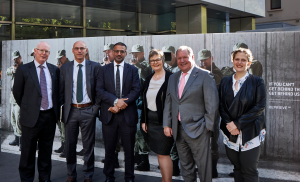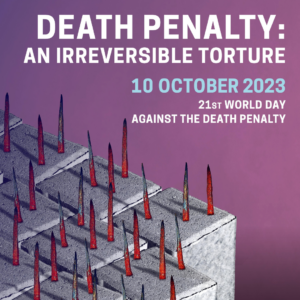
Preaching to the Converted: Reflections on a Week in Australia
- News
- 26 Oct 2017
Our Executive Directors Saul Lehrfreund and Parvais Jabbar look back on their recent trip, hosted by Reprieve Australia.
Earlier this month we made the 24 hour journey across the world to Australia. The nature of our work means we are often travelling to remote destinations to engage governments, politicians and lawyers on the issue of the death penalty. But we are normally headed to countries where capital punishment remains in force.
Half a century has passed since Australia carried out its last execution, and the death penalty was completely abolished in law in 1985. However, Australia’s positioning in proximity to Asia, where many countries maintain the mandatory death penalty for a wide range of offences, means that the death penalty continues to be an issue of national concern and debate. The use of the death penalty for drug trafficking in a number of South East Asian countries means that it is not unusual to find Australian nationals on death row. The 2015 executions in Indonesia of Australians Andrew Chan and Myuran Sukumaran, two of the “Bali nine”, was the source of much controversyback in Australia. The ensuing debate about capital punishment and Australia’s role in promoting abolition in the region shows that the death penalty is an issue that is never completely remote, and highlights the continued need for informed dialogue and awareness raising, even long after a country has abolished.
We were invited by Julian McMahon AC, the leading death penalty lawyer in Australia who represented Andrew and Myuran, and his organisation Reprieve Australia, to join them for a speaking tour of Melbourne and Sydney in the week of World Day against the Death Penalty. Drawing on our work over the past 25 years, we emphasised the role that Australian lawyers, academics and the public can play in the fight against the death penalty in neighbouring countries and the rest of the world. It was a packed itinerary, including a series of talks and discussions with students, academics and members of the legal profession, a talk to a crowd of judges and lawyers gathered outside Melbourne County Court to mark World Day against the Death Penalty, media interviews and an appearance as guests on ABC Radio Melbourne (from 45.05) sharing our experiences representing those facing execution and speaking about the many failures of the death penalty, and why we feel change is needed.
We also met with the human rights and consular teams at the Department of Foreign Affairs and Trade, to discuss how the Australian government can strengthen their commitment to the global abolition of the death penalty, and continue to assist Australian nationals at risk of execution.
We have taken away from the trip a renewed understanding that the fight against the death penalty will not be won on any one front. If we are to successfully move away from capital punishment, strong political commitment is needed from both those countries that retain the death penalty and those that have abolished it. This means we all have a role to play in recognising the death penalty as a global human rights issue which transcends borders.



















